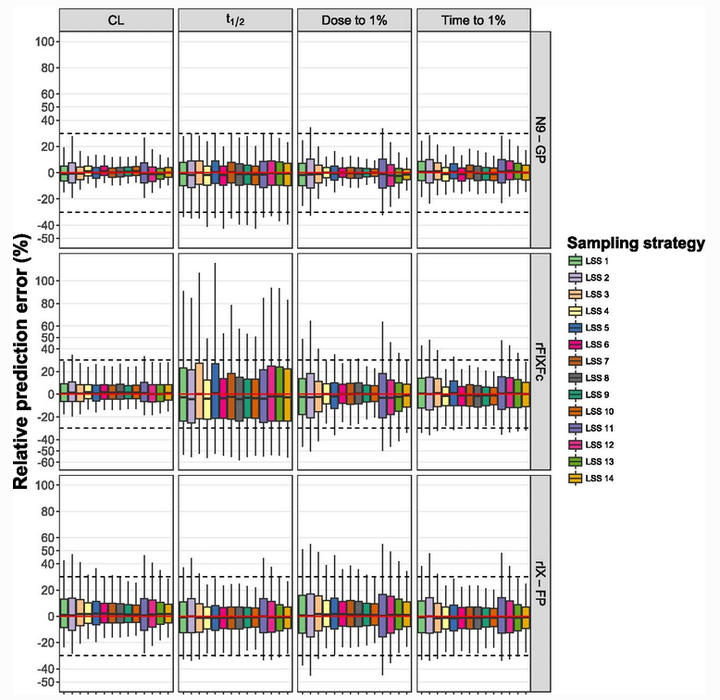In silico evaluation of limited sampling strategies for individualized dosing of extended half-life factor IX concentrates in hemophilia B patients

Abstract
Purpose Hemophilia B is a bleeding disorder, caused by a factor IX (FIX) deficiency. Recently, FIX concentrates with extended half-life (EHL) have become available. Prophylactic dosing of EHL-FIX concentrates can be optimized by assessment of individual pharmacokinetic (PK) parameters. To determine these parameters, limited sampling strategies (LSSs) may be applied. The study aims to establish adequate LSSs for estimating individual PK parameters of EHL-FIX concentrates using in silico evaluation. Methods Monte Carlo simulations were performed to obtain FIX activity versus time profiles using published population PK models for N9-GP (Refixia), rFIXFc (Alprolix), and rIX-FP (Idelvion). Fourteen LSSs, containing three or four samples taken within 8 days after administration, were formulated. Bayesian analysis was applied to obtain estimates for clearance (CL), half-life (t1/2), time to 1% (Time1%), and calculated weekly dose (Dose1%). Bias and precision of these estimates were assessed to determine which LSS was adequate. Results For all PK parameters of N9-GP, rFIXFc and rIX-FP bias was generally acceptable (range: −5% to 5%). For N9-GP, precision of all parameters for all LSSs was acceptable (< 25%). For rFIXFc, precision was acceptable for CL and Time1%, except for t1/2 (range: 27.1% to 44.7%) and Dose1% (range: 12% to 29.4%). For rIX-FP, all LSSs showed acceptable bias and precision, except for Dose1% using LSS with the last sample taken on day 3 (LSS 6 and 10). Conclusion Best performing LSSs were LSS with samples taken at days 1, 5, 7, and 8 (N9-GP and rFIXFc) and at days 1, 4, 6, and 8 (rIX-FP), respectively.